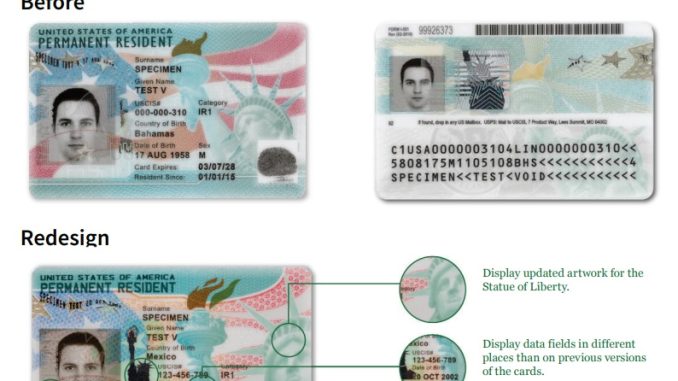
If you’re a Green Card holder (lawful permanent resident) of the United States and you’re denied entry into the U.S., it can be a concerning and confusing situation.
While Green Card holders generally have the right to enter the U.S., there are several reasons why they might be denied entry. Here’s what you need to know:
Reasons Green Card Holders Can Be Denied Entry:
Criminal History or Pending Charges:
If you have been convicted of a serious crime (such as drug trafficking, violent offenses, or other felonies), you might be denied entry upon returning to the U.S.
Pending criminal charges or being considered a security threat could also result in denial.
Issues with Immigration Status:
If you have been outside the U.S. for an extended period of time, typically more than a year without proper documentation, your Green Card may be considered abandoned. This could lead to denial of re-entry.
If you were previously deported or removed from the U.S., you may face difficulty re-entering even with a Green Card.
Failure to Maintain Permanent Resident Status:
If immigration authorities believe you have been living outside the U.S. for too long (more than 6 months or a year), they might determine you’ve abandoned your residency. This is often the case if you haven’t maintained a home or job in the U.S. or have been living abroad for a long time.
Inadmissibility Due to Health Issues:
If you have a contagious disease (such as tuberculosis), it could make you inadmissible to the U.S. This is more common in health checks performed at the port of entry.
Fraud or Misrepresentation:
If you were found to have fraudulently obtained your Green Card or misrepresented any information during your application process, you may be denied entry. This includes providing false information about your background or immigration status.
Unpaid Taxes or Legal Issues:
Being found in violation of U.S. tax laws, such as not paying taxes or filing incorrectly, can sometimes result in entry denial.
Failure to Comply with U.S. Law or Policy:
If you’ve violated U.S. immigration laws, like failing to notify authorities of your extended stay or changes in your address, it might lead to entry denial.
This can also include being involved in activities such as terrorism, espionage, or any conduct that poses a threat to the U.S. government or security.
Previous Removal or Deportation:
If you’ve been deported from the U.S. before or faced any immigration removal proceedings, you might be blocked from re-entry under the law. Depending on the reason for deportation, you may need to apply for a waiver.
Also Read : https //redeem.codashop.com| How to Use Codashop
What to Do If Denied Entry:
If you’re denied entry as a Green Card holder, here’s what you can do:
Request an Explanation:
You have the right to ask U.S. Customs and Border Protection (CBP) for the reason you were denied entry. They should provide a clear explanation for the decision, whether it’s due to immigration violations, criminal issues, or something else.
Contact an Immigration Lawyer:
If you are denied entry, it’s crucial to speak to an immigration attorney immediately. An attorney can help you understand the situation and assist with the process of re-entry. They can also help determine if you can appeal the decision or if you need to apply for a waiver.
Request a Hearing:
If CBP denies your entry, you may be able to request a hearing with an immigration judge. Depending on the situation, the judge can review your case and make a determination.
Consider Reapplying:
If you were denied entry due to immigration violations, you may need to apply for a waiver or special permission to return to the U.S. This process can vary depending on your specific circumstances.
Be Prepared for Delays:
Denied entry can sometimes lead to delays or detainment at the port of entry. It’s important to remain calm and cooperative with U.S. authorities. If you are detained, you may be allowed to speak with legal counsel.
How to Avoid Denied Entry in the Future:
Keep Track of Your Time Outside the U.S.:
Ensure that you don’t stay outside the U.S. for more than a year without obtaining a re-entry permit. If you know you will be gone for a long time, apply for the permit before you leave.
Stay in Compliance with U.S. Laws:
Maintain compliance with U.S. immigration, tax, and criminal laws. If you’re in the process of adjusting your status or have encountered legal issues, it’s important to resolve them before attempting to return.
Notify Authorities of Address Changes:
As a Green Card holder, you are required to inform the U.S. Citizenship and Immigration Services (USCIS) of any changes in your address. Failing to do so can lead to complications with your permanent residency status.
Check Passport and Visa Status:
If you travel with a passport from another country, ensure that your visa is valid and there are no issues with your travel documents before leaving the U.S.
Conclusion:
Being a Green Card holder generally gives you the right to live and work in the U.S. permanently, but it does not guarantee entry at all times. If you are denied entry, the best course of action is to stay calm, seek an explanation, and contact an immigration attorney to explore your options.
Be the first to comment